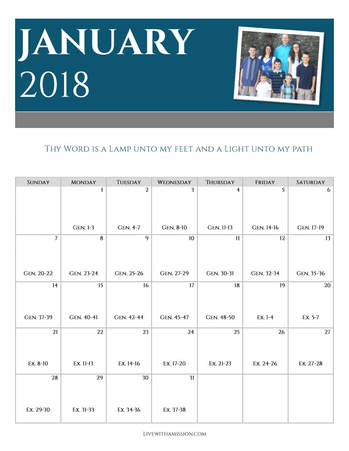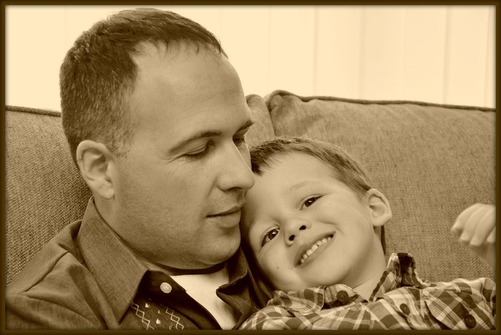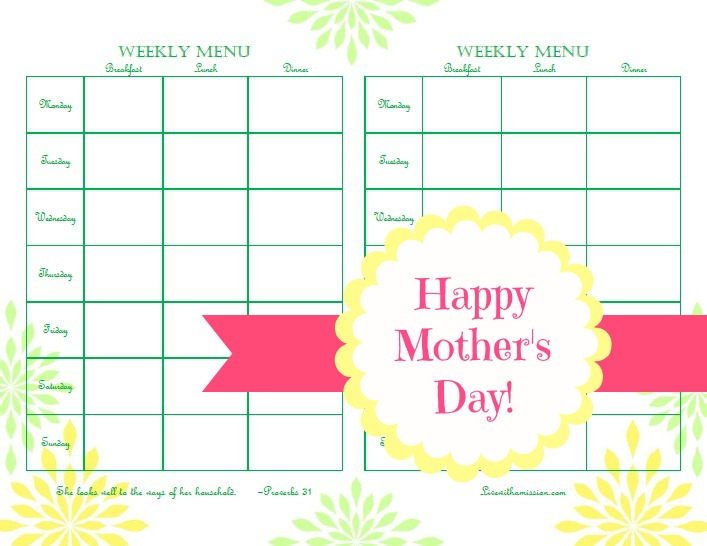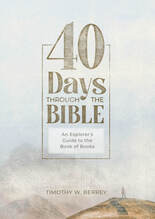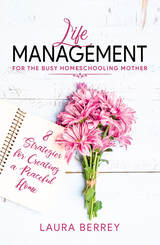|
We have found this annual event is the most important factor in the success of any of our endeavors as a couple. As a couple, my husband and I have worked hard at communication. That doesn't mean we have always succeeded; we have had our fair share of communication mishaps, like most couples, where we plumb forgot that we hadn't mentioned to our spouse that company was coming, or that we volunteered them for (fill in the blank), or that so-and-so was getting married. However, when it comes to the basics of family life, we have managed pretty well. This, in spite of living increasingly busy lives filled with ministry, mission trips, hospitality, homeschooling, furloughs, and other travels. And I can tell you exactly the reason why. We call it our annual Goals And Planning (GAP) Retreat. Once a year, usually in January, we put our lives on hold for 24 hours in order to get away as a couple for the explicit purpose of planning and prayer for the upcoming year. During that 24-hour retreat, we hole up somewhere quiet and discuss all the issues that we face as a couple and as a family and plan ahead for everything that needs to happen that year and in the future upcoming years. We do both long-term and short-term planning, making individual, family, and ministry goals. Since we started doing this, we haven't missed a year. We have found that this is the single most important factor for success in all of our ministry and family endeavors. IS IT WORTH IT? Years ago I worked at a major pharmaceutical company in America, and one of my responsibilities was to help my boss organize and run their Annual Business Planning Retreat. Employees flew in from all over America, taking valuable time out of their busy schedules, in order to gather at a conference center for a few days and plan the direction of the company for the next year. The cost of that week, both in time and money, was staggering. And yet, I have no doubt it was worth it. When considering your annual GAP Retreat, you may wonder if it will be worth the cost in both time and money for you and your spouse. I can assure you that if you do this properly, your investment in this one day each year will be more than worth it. Couples with young children, especially, may have trouble finding a babysitter and wrangling this time alone. Don't let that stop you. You probably need this more than anyone else! You who are so immersed in diapers and pacifiers often find it hard to poke your heads up for air and make time for your spouse or for life planning. It's easy for you, especially, to get lost in the trees and lose sight of the forest. The long-term welfare of your family can easily get drowned out by your short-term, sleep-deprived need to survive. I understand. There have been years where the first thing on our agenda for our GAP Retreat was a good nap. Maybe, on the other hand, you are empty nesters and don't feel a need to leave your home in order to find some time alone. You may find time alone while in your normal daily surroundings, but will it be distraction free? Investing in a one-night stay at a nearby hotel or bed and breakfast will ensure that your focus can remain on your spouse, God, and the necessary planning you need to do. As a couple, the two of you are yoked together. In order to accomplish the work God has for you to do, you must be pulling at the same load, pulling at the same speed, and pulling in the same direction. Otherwise that yoke is just slowing you down and messing you up. This GAP Retreat will give you a vision, as a couple, for how you can help each other complete the work God has commissioned you to do. It will help you live with a shared mission, a shared ambition. The twenty-four hours you spend with your spouse nailing down your goals and activities for the upcoming year will be an investment that pays dividends. Yes, it is worth it. WHAT TO DO ON YOUR GAP RETREAT Each couple will find their own rhythm when it comes to this retreat, but let me share some of the things we do.
THINGS TO DISCUSS ON YOUR GAP RETREAT Personal Goals We each get our own list. This includes things like health and fitness, Bible reading, other personal reading goals, writing goals, and random stuff like taking online courses in modern Hebrew or Ugaritic. (Bonus points for you if you can guess which one of us wants to take the Ugaritic course.) Family Goals This includes all the things we want to do together as a family or want to incorporate into our parenting. We include Bible reading and memorization, reading out loud (we are currently working through the Sugar Creek Gang books), any specialized skills we want our children to learn, music lessons, and any specific homeschooling goals. We often discuss gift possibilities for the year because we are intentional in our gift giving for our children, always seeking gifts that promote their education, physical fitness, skills, or spiritual growth. Financial Goals We sometimes discuss our financial situation or financial or budget-related goals that we wish to set. We take a look at the projects we are giving to, and what we might want to give to in the future. Sometimes we set goals about how we can increase our giving. Ministry Goals We have our ministry at BJMBC and all our goals associated with that, but this section also includes other ministry endeavors. We list any requests for us to speak or teach in other places in the Philippines or in other countries and the preparation we need to do for those events. We also try to prioritize our children's ministries, like their Children's Choir at church and the neighborhood Bible Club our children minister in. Often we try to plan for ministries of hospitality or small group gatherings of one sort or another. Miscellaneous Items This is exactly what it sounds like. Surprisingly, we usually have many miscellaneous goals. We are both life-long students, so there is much we want to learn and accomplish. It seems like our prayer and discussion times often result in a family or ministry theme for the year. One year we were burdened about strengthening marriages and families. That informed our acceptance of speaking events. When we were asked to do two separate weekend events on two separate islands, we knew right away that the one we were supposed to accept was the one that would further our goal of strengthening Filipino families. God led clearly through the theme He had already given us. That same year we also hosted small-group events at our house for couples from our church to gather and watch a DVD series on the topic of marriage. Another year our burden was for encouraging believers to plan their lives God's way. This resulted in a book and a seminar that Tim has taught in many places. I cannot overemphasize the power this retreat has had in pushing us forward in our goals. RELATED: The Three-Part Goal Setting Series. TAKE TIME FOR FUN! We don't just work on this GAP Retreat. We also take time out to do some fun things together as a couple. Depending on where we are and what we have time for, we will play games, go on dates for meals, spend time doing a favorite activity such as swimming or hiking, or just go out for coffee and dessert. This isn't just about work. It is about reconnecting as a couple and taking a break from the world in order to focus on each other. It should be the most romantic, wonderful day of your year as a couple. We find this is often the highlight of our year as a couple. THE BENEFITS OF AN ANNUAL GOALS AND PLANNING RETREAT Between you and me, this annual Goals And Planning (GAP) Retreat has been one of the best investments we could have made in our marriage, our family, and our ministry. What are the benefits we have seen?
I'd like to encourage you to consider taking a GAP Retreat with your spouse. It will be life-changing for you as a couple, as you take the time to plan out your year and your future, examining your life from all angles and making both long-term and short-term goals. Here are six resources for helping your children with their devotional life and Bible reading. Tools for Helping Your Children Read the Bible1. Use a family Bible-reading calendar. Make your own or personalize this calendar with your family photo and encourage your children to follow along. We try to make Sunday afternoons a catch-up day for those who may be lagging behind schedule. 2. Give your children a checklist. Children love to check things off! You can give them a dated checklist with a favorite Bible reading schedule or a simple checklist of chapters in the Bible. It is a delight to watch their progress through the Word of God! 3. Purchase a One-Year Bible. Some children prefer this method of reading. It gives them a balanced menu of OT, NT, Psalms, and Proverbs. The reading selections are dated, so it is easy to keep track of what day they are on. 4. Provide a Study Bible. For older children, a study Bible with extra information about the text may be just what they need to answer the questions they have as they read. 5. Use an audio Bible. For younger children who either don't read yet or who struggle with reading the more challenging words in the Bible, try an audio edition. Older children can listen to the Bible while following along in the text. Younger children could listen while playing (but you need to provide toys without noise). 6. Schedule a time in their day for their devotions. The older your children get, the better they will become at managing their time. But for most children, it will help them if they have a slot of time specifically dedicated to their personal devotional time. Do your children have a morning routine or bedtime routine that sets aside time for the very important activity of reading their Bible and praying? For some children, time might be the most helpful resource of all. MORE ABOUT THIS TOPIC:
How can we be wives who open our mouths with wisdom and let the law of kindness guide our tongues? We love ancestral lore in our family. It gives me a sense of familial attachment and continuity to know, for instance, that I am a descendant of a Reformation Era martyr, and that one of my shadowy fore-mothers was abducted by Indians and wandered out of the woods several years later with a little half-breed baby. My father's family even has its own form of the "I'm my own Grandpa" story that requires a large whiteboard and several different colors of markers to map out. But then there are those other stories. The black sheep legends. The dusty skeletons that hang out in ancestral closets. For instance, from way back in my husband's family tree, the story is told of how one boy's mother came home from serving a funeral dinner at her local church and thus did not have her own family supper on the table at the normal time. His father was so incensed at his wife that he refused to speak to her for several weeks. Scared by the silence reigning in the house, the boy went to his grandmother for advice and sympathy and was understandably perturbed when his grandmother answered airily, "Oh, honey, don't worry about that! There have been times when your grandfather didn't speak to me for months." Besides the fact that this reminds us that our children will follow in our footsteps, it also illustrates the wrong way to give your spouse the silent treatment. Recently I experienced a sore throat and lost my voice for several days. My husband and children enjoyed it a little too much, I think, in spite of their professions otherwise. (My kids declared they preferred my normal voice over my hoarse whispers and randomly generated sign language.) But those few days had a profitable impact on me: whilst stranded on my isle of pain without a voice, I gave some extra thought to the power of words, specifically when I should use them and when I should exercise my right to remain silent. In marriage, for instance, there are seven excellent reasons we should opt to give our husbands the silent treatment. 7 Reasons to Give your Husband the Silent Treatment1. When we are tempted to tear him down, be sarcastic, or speak unkindly.
2. When we are discontent or ungrateful. Women who are discontent may drive their husbands to make foolish decisions. Have you ever heard about a man who went too deeply in debt for a house he couldn't afford, because his wife expressed discontentment over their living quarters? Has your husband ever done something special for you and you "thanked" him by expressing your wish that he had done something else? If you can't be grateful, be silent until you can! Ultimately, the surest way to develop gratitude toward your husband is to be thankful to God. (Eph. 5:4, 19-20) 3. When we are frustrated about a decision he has made. (Ephesians 5:33) No, his opinions and decisions are not always perfect. Newsflash: neither are mine or yours. I'm blessed to be married to a man who asks for and wants my opinion, but that doesn't mean he always does what I suggest. A few months ago my husband made a decision that I didn't like (after listening thoughtfully to my opinion). For several months, every time the subject came up, I let him know how I disagreed with him over that particular matter. Thankfully, the Lord convicted me about what I was doing and gave me grace to apologize to him and adjust my attitude. I ended up loving the choice he made. (Go figure.) God blesses us when we let our husbands take leadership in our homes. 4. When our words or tone of voice will convey disrespect. (II Samuel 6:16-23) Ask Michal if disrespectful words are worth the consequences. When King David came back to Jerusalem with the Ark of the Lord, his uninhibited worship in the streets struck his wife as undignified and she despised him in her heart. When he came home to bless his house, she met him with a gush of pent-up criticism that their relationship never recovered from. Listen to the way you speak to your husband. Do your words convey reverence or disrespect? (I have found this resource very helpful when it comes to hearing a man's viewpoint on what comes across as disrespect.) 5. When we are angry. Maybe he hurt your feelings with some unkind or angry words of his own. Or forgot your birthday. Or made a poor financial choice. Take some time to cool down and control your spirit. Don't immediately blast him with your anger. Proverbs has some choice words to say about anger:
6. When we have an unholy urge to blame-shift. Blame-shifting is as old as the Garden of Eden. "But the woman You gave me. . ." "But the serpent. . . " We wives are not immune to the temptation. Just like Eve, when our husband blames us for something, we automatically want to respond by passing that blame on, either back at him or towards someone or something else. Instead, we should look honestly at our lives, evaluate the blame that is ours, own it, and confess it. 7. When we are tempted to ask a leading question. Are your questions a test to see if he can get the right answer? We all know what this is like. "Does this dress make me look fat?" (My father had a droll answer for that one: "No, dear, that dress doesn't make you look fat.") Maybe, like me, you start conversations by asking for advice you have no intention of heeding. "Do you think Junior should sign up for Little League?" (Because you don't want him to, and when your husband innocently says, "Sure," you plan to give him a bulleted list of all the reasons it is a bad idea.) Just. Don't. Do. This. We women are good with our tongues. We wield them with all the zeal of a warrior sometimes. It would help us to remember that "when words are many, transgression is not lacking, but whoever restrains his lips is prudent" (Proverbs 10:19). Sometimes, in order to nurture our relationship, we should instead choose to give our husbands the "silent treatment." Did you like this post? You might also like When True Love Doesn't Wait.
How do you teach a not-yet-reader to love the Word of God? In addition to reading the Bible to them from a young age, here are 5 other ways. 5 WAYS TO TEACH YOUNG CHILDREN TO LOVE THE WORD OF GOD1. Listen to the Bible on CD. (Or, in this day and age, you can stream it.)
When I was a child, my father often had tapes of the Bible playing in our house. Even before I could read, I loved the intonation of the words of the Bible as read by Alexander Scourby. This year one of my goals is, whenever possible, to have my children go to sleep listening to the Bible on CD. My children really enjoy this. 2. Read Bible Stories to Them. I remember in vivid detail the night I asked Jesus to save me from my sins. I was about four years old, and we had read the story of Christ's death on the cross during our family devotional time. Every time I think of that night, I think of the picture of Jesus on the cross from the Bible story book we read. The Bible in Pictures for Little Eyes is still one of my favorite Bible story books for little children and we use it for devotional times with our little ones. My children have loved that particular book so much that we have gone through 4 or 5 copies of it. It is hard to find now; the publisher has updated it with cartoon-like pictures, which is a real shame because the original pictures are stunning. I highly recommend the original book for children ages 1-6. 3. Teach them Bible songs. We had a favorite song we sang to each of our babies when we put them down to bed. In addition, with our twins, David and Daniel, we started singing "Only a Boy Named David" and "Dare to Be a Daniel" to them before they were even born. Do you teach your children songs at a young age? Here are some great ones to use:
4. Memorize, Memorize, Memorize. The early years are "parrot" years. Little children are like sponges and they love to memorize. The verses you teach your toddlers will stick in their minds for years to come. In kindergarten, my class memorized a major portion of Hebrews 11 and to this day I retain most of those verses in my long-term memory. Don't underestimate the ability of even very young children to memorize. A 2- or 3-year-old child can memorize whole passages of Scripture. Memorizing is fun for small children. 5. Set a good example. Let them see you reading your Bible in the mornings. They will automatically pick up on your love for it. Instill a respect in them for your devotional time. When my young ones wake up early and interrupt my Bible time, I try to remind them that this is Mama's most important time of the day because I am learning about God. In addition, my little ones watch the older children read the Word of God in the early mornings. Your children innately know what is important to you and it shapes their own worldview. These are just five of many ways to teach young children to love the Word of God. If we want them to learn while they are still young to let the Word of God dwell in them richly, we must be intentional with our parenting. Of course, we should always remember that the end goal is to teach them to love the God of the Word. It is through the Word of God that they will come to know, trust, and worship Him. What do you do to teach your children to love the Bible at a young age? When we as parents have to rebuke our children, what important thing should we remember to include? Life, when you have a passel of sons, is not always good tidings of great joy. Sometimes it includes good chidings of great boys. I have five great boys (and one terrific girl) and they occasionally (okay, often) require me to do some good chidings.
A good chiding should include the good tidings. It should include the Gospel. I say this because I think we sometimes miss it. (I know I do.) We give our rebuke and, especially if the child has already made a profession of faith, we stop there. If we have a child who has not yet turned to Christ with his whole heart, we often will give the Gospel. ("You punched your brother. See? You need Jesus to save you from your sins.") But the Gospel isn't just for unbelievers. The Gospel is also for us--we who know Christ and love Him. We who follow Christ. We who take up our cross and deny ourselves. We who can even say, with Paul, "I die daily." We, also, need the Gospel. We need the memories of it and the meditations on it. We need the effects of it to cleanse our lives. The Gospel isn't just for regeneration. It is also for sanctification. When I heard about a Christian leader a few years ago who had sinned greatly, my first thought was, "The Gospel is for such a time as this." When I faced a time of despair in my own life, when my faith felt minuscule and my troubles and sins seemed overwhelming, I reminded myself, "The Gospel is for such a time as this." When my husband and I counseled a Christian couple who had slashed their marriage apart with sin and were painfully trying to stitch it back together, this thought gave me hope, "The Gospel is for such a time as this." The Gospel is for believers as well as unbelievers. The thought that Jesus Christ died on the cross to save me from my sin doesn't just affect my eternal security, it affects my daily sanctification. It sends me to my knees in contrition when I have sinned. It causes me to fix my eyes on the object of my faith and not just stew about the perceived depth of my faith. It reminds me that Jesus doesn't just cleanse me from pre-regeneration sins but also from my sins NOW. (How often do we fall into that kind of thinking?) When guilt knocks at my door, Christ's blood answers it. When Satan's mocking accusations threaten my peace, the sacrifice of my good Shepherd restores my soul. Because of the Gospel, I know that I can always triumph. The head of the serpent has already been crushed. The Bible says that the goodness of God leads us to repentance. What gives a sin-blackened Christian hope to even begin to confess and forsake sins? The cross. The depth of Christ's love. The goodness of God. When you, as a parent, give good chidings to your children, include the Gospel. Even if they are already saved. The Gospel is for such a time as this. And the next time you find yourself in a position of sin (probably a few minutes from now, if you are fully human), remind yourself that the Gospel is for such a time as this. We are often offended or hurt by the actions of others. When this happens, what should we do? We were reading Joshua 12 before breakfast. Or, I should say, we were trying to. For some reason, this Monday morning reading was punctuated by internal chaos. There were a few funny names in the passage (names like "Og" just beg for discussion), and then there was a heated controversy about the Chinneroth Sea and whether it actually looks like a harp. One of my three-year-olds was so intently looking at the map in Daddy's Bible that he sprawled headlong across the table. It tickled us. He looked up and saw us laughing and immediately misunderstood the laughter. With a hurt look on his face, he told us sternly, "It's not funny!" Which, of course, made us laugh even harder. Not at him, you understand, but at his all-around cuteness. Which he misinterpreted and then became even more offended. Daddy noticed. "Don't look at them," he said gently to him. "Look at me and I will smile at you. I love you." He smiled at my three year old with love. Three times during the course of the meal he said the same thing. Once someone looked at someone else with a funny look on their face. (Yes, surprisingly, my children do this. Even more surprisingly, my children are offended by this.) "Well, don't look at him," Tim said to the offended person. "Look at me and I will smile at you. Like this." He smiled. I was moved by this display of fatherly love. I was moved almost to tears, primarily because I could see my heavenly Father's love in the actions of my husband. Have you ever been offended by someone else? They gave you a funny look, or they said something hurtful, or they pointed out a fault of yours that you would prefer they overlooked. Perhaps it was done in love, but perhaps not. Perhaps it was done out of extreme spite or blatant maliciousness. I have an idea for you. When someone hurts you, don't look at them. Look at your Father. He is smiling at you with love. Yea, I have loved thee with an everlasting love. Before the wedding, true love waits. But after you are married, there are a few things that true love doesn't wait for. . . Read this guest post at Rooted Thinking.
In honor of Mother's Day, I would like to share a present with all those mothers who look well to the ways of their household! I did a little math this morning.
If I have 8 people in my household and I serve each of them 3 meals a day, that equals 24 meals that I serve each day. (That part of the math was simple.) Multiply that times 365. 24 x 365 = 8,760 That is how many meals (approximately) that I serve in one year. Wow. Why am I mentioning this? Because all of that meal-serving takes planning. We mothers need to PLAN to serve healthy, delicious meals to our family. Whistling our way though our day expecting it to just happen is kind of like believing in the Big Bang. Wishful thinking. Moms, we are the prime ministers of our homes. Meal planning is one way of serving our families on a daily basis. Let's do it well. And this year, let's do it pretty with this weekly menu planning sheet. This will be available for download this week, in honor of Mother's Day! Download it for yourself or for a mother who is special to you. Happy meal planning, Moms! (If you will excuse me, I need to go make 8 breakfasts!) I was reading the Bible at the breakfast table to my children in my best effort to uphold the Tim Berrey tradition while he was away for the week teaching a CEP (Continuing Education for Pastors) class in Mindanao.
We were in the book of Revelation, and at first I had everyone's attention. (Dragons! Beasts! Trumpets!) But then something happened. First David saw the toy zebras and wanted them. He is at that age of toddlership where children repeat the same thing over and over until you acknowledge that you heard it. "Zebra, Mommy? Zebra? Zebra?" Then, just as I assured him that I had accurately interpreted his words (but that he needed to wait until we were done reading to play with the zebras) and began to read again, the toast popped up. Our toaster is uncertain how to go about its job. Sometimes the toast is white and sometimes it is black. We love it anyway, but we know we have to babysit it. So the kids were all telling each other to go check the toast. Finally we got that settled (perfect toast), and I began reading again. And then. . . Just as I was reading about how the accuser of the brethren is conquered by the blood of the Lamb, one of my boys saw his own revelation: a dead cockroach under the table. Actually, it wasn't dead. It was still in the lala land bugs go to when they end up on their backs. His legs and feelers were still waving, but he wasn't going anywhere. The Word of God is far more important than that. "We will take care of him later," I announced, mustering up my best Mommy voice. And we finished reading. Powerful passage. They forgot about the cockroach until I kept my promise and "took care" of him later. "Eeewww," my boys said, with evident enjoyment. Zebras, toast, and cockroaches. They pull our attention away from the one needful thing. The most important part of the day. The thing without which we cannot spiritually survive in this world. What takes your attention away from the Word of God? The zebras were toys. There is nothing wrong with them. But they are not something to focus on, either. We adults have our own toys. (Hint: most of them are on our computer or cell phone.) Are they drawing our attention away from the Word of God? The toast was breakfast. Food. A necessary thing. But even the necessities of life have their place. We cannot let them take precedence over our Word time. Man cannot live by bread alone, but by every Word that proceeds from the mouth of God. The cockroach? Well, we all know what kinds of revolting, despicable things there are out there. (Some of those things show up in movie theaters around Valentines Day.) Don't play with them. Don't dirty your hands and your lives with them. Kill them. Practice radical amputation when you find them infesting your life. Cockroaches are scum-suckers. Bottom-feeders. Dead or alive, they are creepy-crawly disgustingness. It is better to enter heaven with one hand or one eye than to be cast out forever because that part of your body kept you from the Lord. Let's be as hasty to kill the moral scum in our lives as we are to kill the cockroaches under our tables. Zebras, toast, and cockroaches. It is a new day, a new week. A new start. Give the Lord the first part--the best part--of your day. When you read the Word, focus. Don't be distracted. My personal rule of thumb is that God gets my time and attention before I turn on my computer or open a book. Unless there is an emergency or an urgent need, nothing comes before my time with Him. It is a habit that has become a tremendous blessing to me. And, if you have children, the best thing you can do for them today is to help them, also, to focus on the Word. Zebras, toast, and cockroaches. The Word of God is far more important than these things. So, you have met THE ONE. Or you think they may be THE ONE. Or you hope that they are. But how can you know for sure? The Checklist:This checklist of six very important things is a start to determining God's will for your marriage.
|
Tim and LauraTimothy and Laura Berrey are missionaries with Gospel Fellowship Association. They share a passion for missions which has taken them to several countries in Africa, Asia, and Europe. They currently minister in the Philippines. Want articles like this delivered to your inbox?
Categories
All
We send out occasional updates about recently published articles and books. To receive these updates, please subscribe to our newsletter. |





